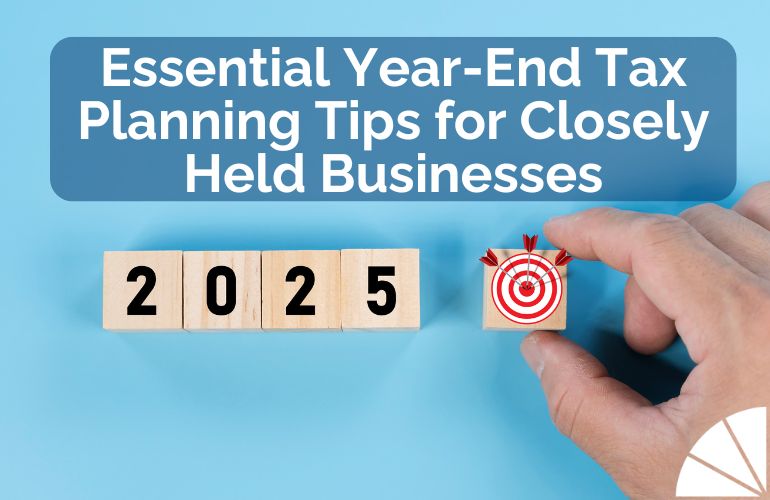
From the wise words of Benjamin Franklin, “In this world, nothing can be said to be certain, except death and taxes.” So naturally, shouldn’t we plan for both? One planning idea is to use a business valuation on your income real estate to reduce your estate tax.
I’m sure many people are thinking, “With this new tax bill my estate falls well under the $11.2M individual or $22.4M married Federal Estate limits; I have no reason to worry about transferring my wealth along!” And yes, that may be true for now, but the key words are for now. This is the first major tax revamp since 1986 and it is coming at a time where there is a lot of uncertainty in how it will affect the economy and budget deficit of the nation. With that in mind, it would be wise to start planning now for ten years down the road when we could be back at $5-10M estate limits. Massachusetts residents must also consider the lower Estate exemption limits applicable for State purposes, which may give rise to an Estate tax liability.
Rarely do we look to reduce the value of our properties we’ve worked so hard to acquire but facing estate taxes is often one of those times. When it comes to valuing property, many people have their property appraised and accept the result as the value of their estate. However, when it comes to determining the value of an operating business, there are a variety routes to consider.
The valuation of a business has different approaches and methodologies from a real estate appraisal. A commercial property real estate appraisal typically considers comparable sales within the area, the capitalization rate, and expected rental/lease income depending on the size of the building. A business valuation will also dive into the comparisons of what similar businesses sold for, the income the business is producing, and the value of the assets which are held by the business. In addition to taking these three major factors, valuation experts will apply a discount for lack of marketability or a minority interest, depending on particular circumstances.
- A discount for lack of marketability is a reduction in the valuation of your business since it is illiquid and can’t be sold easily like a few shares of stock from a publicly traded REIT. This discount is the place where the majority of owners will see the reduction in value they are searching for. The typical range of discounts can be anywhere from 0-40% of the overall market price determined by the combination of the three approaches noted above.
- A minority interest discount is another factor that may affect a business valuation. This discount only applies when you don’t own a controlling interest in the company (less than 50%). For instance, if you own 49% of a business you’re not in control of the company and don’t have the ability to fully influence the direction of the company; therefore, your stake has less value than a stake in the company which has control of the direction. A minority interest discount typically range from 0-30%.
Even reducing your basis by 10% could save you tens of thousands of dollars, if not hundreds of thousands when the time comes to collect estate taxes. That’s why we often recommend valuing any income properties you own as a business when the time comes to plan for your estate.
Okay, This Sounds Great, but How Do I Do This?
While you could do this yourself, (although it’s not suggested, as the IRS will come after you with questions to pick apart your report, rationale, and qualifications), hiring a qualified business valuator such as a Certified Valuation Analyst (CVA) would be recommended. Seeking out a CVA ensures the valuation will be done properly, and significantly reduces the risk of an IRS audit.
How Much Will a Business Valuation for My Real Estate Cost? Will it Really Be Worth it?
The costs will vary depending on location and complexity of the valuation, and typically range between $4,000 and $10,000, after considering all the relevant facts.
To review a quick example, let’s assume an Estate with $12.2M in assets. The estate tax is applied to assets over $11.2M, so $1M of your estate is taxable at 40%. Your real estate is $1M per real estate appraisal, but after the results of a business valuation it has a 10% discount so the taxable estate is only $900K. This would save you $40K in estate taxes. You paid $10K for a valuation that saved you $40K in estate taxes. Again, the effect for Massachusetts residents would significantly increase the tax savings due to the lower state Estate exemption limits.
You’ve Convinced Me… So When Should I Start?
The answer to this, like most in the accounting/tax world, is it depends. If you’re at the point where you’re starting to plan for your succession, now may be a good time. However, if you’re not planning on gifting any percentage of your business any time soon there’s probably no reason to do it now. It really depends on where you are in your estate planning and phase of life.
Estate preparations can be complex. If you have questions about what steps you should be taking with your business valuation, the experts at LGA provide a variety of services to fit your needs. We would be happy to help you with this process. Please contact Frank Storniolo, CPA, CVA, MST with questions or to get started.
Written by Michael Abramowitz





